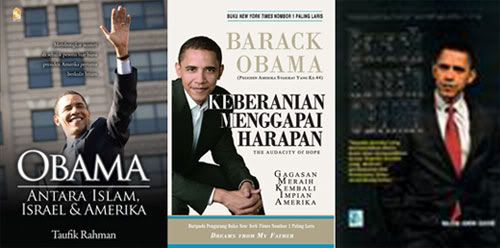 For those who are familiar with the extremist Islamophobic website called “Faithfreedom International”, the name of its founder Ali Sina (a pseudonym) is synonymous with the bigotry and vile rhetoric often displayed against Muslims and Islam. This was a person who openly advocated for the atomic bomb to be used on Muslim populations and have many times declared that he will “wipe out” Islam within 30 years.
For those who are familiar with the extremist Islamophobic website called “Faithfreedom International”, the name of its founder Ali Sina (a pseudonym) is synonymous with the bigotry and vile rhetoric often displayed against Muslims and Islam. This was a person who openly advocated for the atomic bomb to be used on Muslim populations and have many times declared that he will “wipe out” Islam within 30 years.Like his predecessors, such as the infamous Robert Spencer of Jihad Watch, Ali Sina is now attempting to make his name within the world of published authors with the publication of his book Understanding Muhammad: A Psychobiography. Whilst it is true that over the course of years he has gathered a large following of largely misled haters, Ali Sina still has had to resort to self-publishing with a relatively small publishing press where anyone with anything to rant about can publish their own.
The book claims to be a “psychobiography” of the Prophet Muhammad, upon whom be peace, but it is far from being objective and sane in its purported “scholarship”. It claims to refer to the Islamic religious texts (heavily relying on translations and not the original Arabic sources which betrays the author’s lack of command in the language) and then attempts to characterize Muhammad (SAW) in “modern analytical terms”.
Coming from a Shi’ite background in predominantly Shi’ite Iran, it is not clear from the onset as to why Ali Sina favours referencing the Sunni sources such as the hadith collection of Bukhari and Muslim (which is not used by the Shi’a and largely unfamiliar to them) and hardly mentions the Shi’ite sources themselves which talks about the Prophet (SAW).
This leads us to suspect that he may not have the credentials of an Iranian Muslim as he claims to have. Unfortunately, this book does nothing more than to resort to the old underhanded technique of cherry-picking a handful of half-truths, sprinkling them with lies, exaggerations and misrepresentations, and eventually to come up with a twisted mix of politically-motivated propaganda.
















